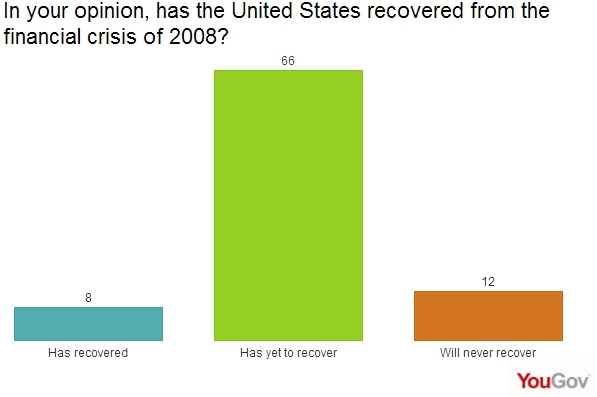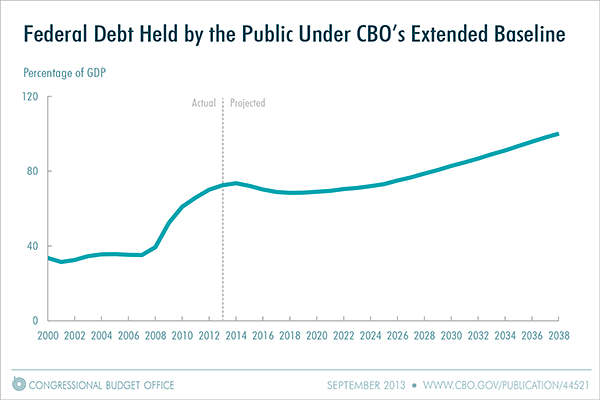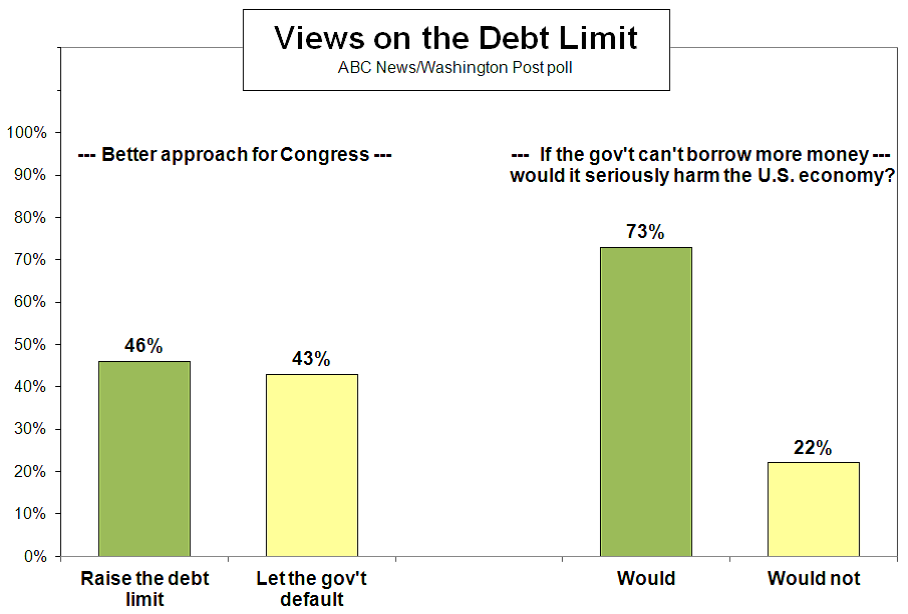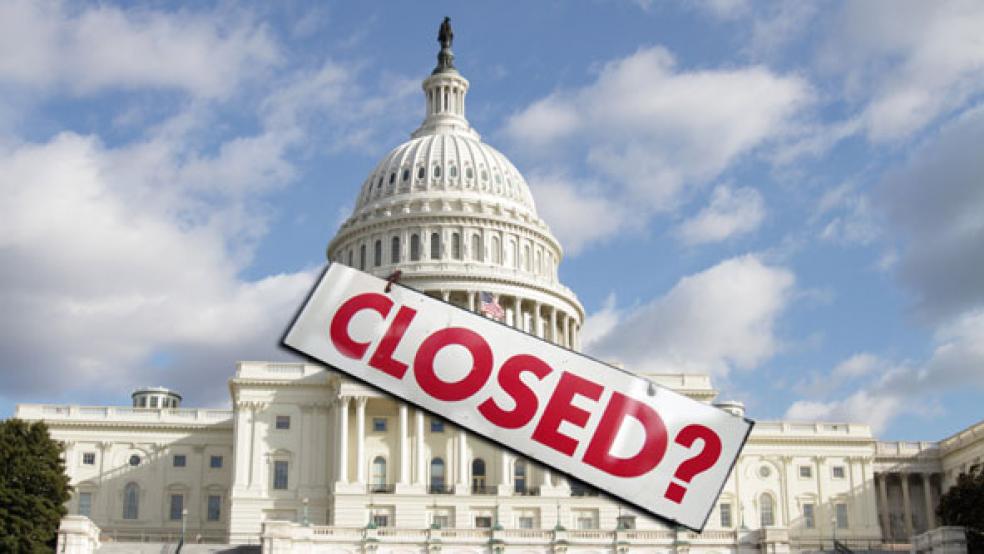The philosopher George Santayana once said that a fanatic is someone who redoubles his efforts after losing sight of his goal. By this standard, many congressional Republicans are fanatics, fighting a war on the deficit that is largely won, using methods grossly disproportionate to the nature of the problem.
When they control the White House, Republicans are very blasé about the deficit. George W. Bush inherited a budget surplus from Bill Clinton and, with the enthusiastic support of Republicans in Congress, systematically dissipated it with huge tax cuts and unfunded wars. Republicans even repealed budget rules that Bush’s father had fought for in 1990 to allow them to cut taxes without constraint.
The budget went from a surplus of 2.4 percent of the gross domestic product in fiscal year 2000 to a deficit of 3.5 percent of GDP in 2004, a turnaround of 5.9 percent of GDP, the greatest 4-year deterioration in the deficit since World War II. The deficit improved a bit afterwards, but fell apart in Bush’s last year due to the financial crisis that developed during his presidency, which raised the deficit to 3.2 percent of GDP in 2008 and 10.1 percent of GDP in fiscal year 2009, which was actually Bush’s last budget, beginning on Oct. 1, 2008.
On January 20, 2009, Republicans suddenly got religion and decided that the deficit was the greatest economic problem of our time. Despite a continuing economic crisis that three-quarters of Americans believe has yet to end, they insisted that the budget be balanced ASAP.

In truth, vast progress has been made on the deficit. After peaking in 2009, the deficit has fallen steadily to 9 percent in 2010, 8.7 percent in 2011, 6.8 percent in 2012, and 3.9 percent this year, according to the Congressional Budget Office, which projects a deficit of just 2.1 percent of GDP next year. This represents the sharpest deficit reduction since the immediate post-World War II era.
Moreover, just this week, the CBO released new projections showing that the federal debt as a share of GDP will actually fall from 74 percent of GDP next year to 68 percent in 2018 and will remain essentially flat through 2026.

The CBO report shows that the U.S. still has a long-term debt problem, but there is no short-term problem whatsoever. The idea that drastic action must be taken today to cut the deficit immediately is just complete nonsense.
Indeed, on Wednesday, the Federal Reserve Board warned that the deficit is actually falling too fast. Fed Chairman Ben Bernanke complained that excessively rapid deficit reduction was causing fiscal headwinds that will reduce real GDP growth by 1.5 percentage points this year—a very large impact.
This was the key reason that the Fed declined to reduce its policy of quantitative easing, which markets had anticipated for some months. The economy needed additional monetary stimulus to compensate for fiscal tightening, the Fed believes.
Yet despite these facts, Republicans in Congress are prepared to both shut down the federal government on October 1 and risk default on the national debt by refusing to raise the debt limit unless President Obama and congressional Democrats, who control the Senate, agree to their demands for immediate, further deficit reduction and repeal of the Affordable Care Act.
Ironically, one of the major reasons for the improvement in the CBO’s long-term budget forecast is that health care costs are expected to rise more slowly than previously projected, in part due to the 2009 health reform legislation.
Even many Republicans outside Congress believe the GOP strategy is counterproductive, bordering on suicidal. It has been criticized by the Wall Street Journal editorial page and former George W. Bush political adviser Karl Rove, among others.
As yet, there is no evidence that congressional Republicans will back down. Efforts by House Speaker John Boehner, House Appropriations Committee Chairman Harold Rogers and other pragmatists have been rejected out of hand by Republican extremists, who seem incapable of comprehending that there aren’t 60 votes in the Senate to repeal the Affordable Care Act. Even if Democrats didn’t have the majority, there are certainly 40 of them willing to filibuster any serious effort to do so, plus President Obama would unquestionably veto it.
Still, many Republicans are convinced that they can force Democrats and the president to do as they demand by shutting down the government and possibly defaulting of the federal debt. Frighteningly, 43 percent of Americans support default even though they know that it will cause serious harm to the economy, according to a new ABC News/Washington Post poll.

And a new Rasmussen poll, which tends to tilt toward Republican thinking, says 51 percent of people favor a government shutdown unless the Affordable Care Act is defunded.
Most Washington insiders think Republicans are playing what used to be called “brinksmanship”—going right up to the brink of war or, in this case, gross irresponsibility and then backing down at the last possible second. But given the fanaticism of a hard core of House Republicans, a government shutdown is very likely and the Obama administration is preparing for it.
The last time Republicans did this in 1995 they were crucified by public opinion and it helped Bill Clinton win an overwhelming victory in 1996.
As I explained last week, cooler heads will probably prevail and a coalition of Democrats and sane Republicans will prevail to prevent a shutdown and debt default. But until we reach the eleventh hour, 10 days from now, the fanatics will continue to control the debate.






